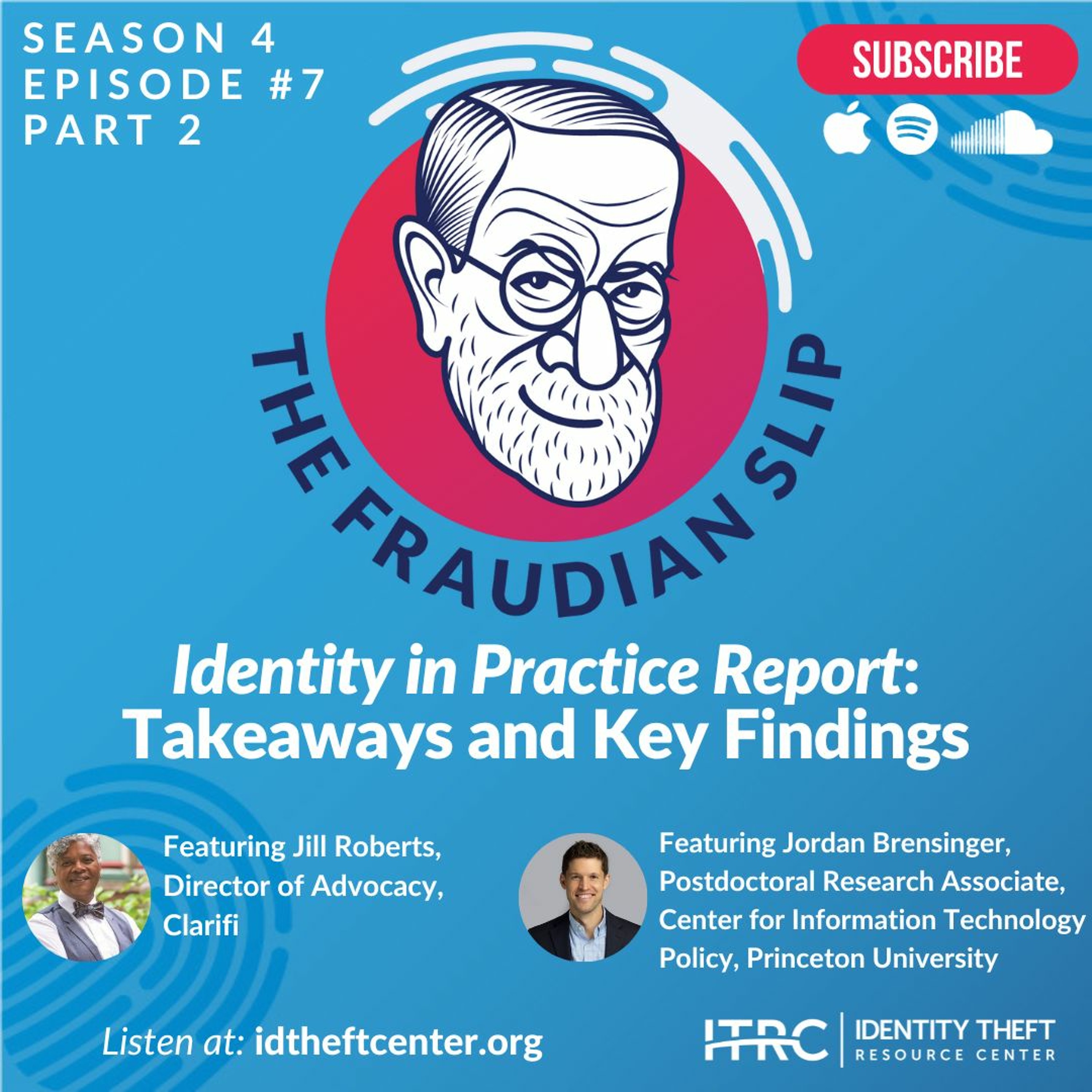This week, in a 2-part segment, we look at the Identity in Practice Report.
Show Notes
Follow on LinkedIn: www.linkedin.com/company/idtheftcenter/
Follow on Twitter: twitter.com/IDTheftCenter
Show Transcript
Welcome to The Fraudian Slip, the Identity Theft Resource Center’s (ITRC) podcast, where we talk about all things identity compromise, crime, and fraud that impact people and businesses. Listen on Apple, Google, Spotify, SoundCloud, Audible and Amazon now. In this month’s episode (part 2 of a two-part series on identity crimes in Black communities), we examine the ITRC Identity in Practice Report, particularly one question: What does it mean?
As a reminder, the ITRC has been engaged in a multi-year, multi-phase program we call Identity in Practice in partnership with the independent research group – Black Researchers Collective. Supported by LifeLock (a part of Gen™), Synchrony and the Wells Fargo Foundation, the first two years and two phases have tackled a very simple question with a very complex answer: Why are there more Black victims of identity crimes compared to the general U.S. population?
In Part 1, we explored the broader issues of identity crimes identified in the research. In Part 2, we discuss some of the specific findings resulting from quantitative and qualitative research, including focus groups in Philadelphia, Atlanta and Chicago in cooperation with local community groups. We also look at the million-dollar question: What does it mean?
Takeaways from the Identity in Practice Report:
- Most participants were victimized by strangers. However, a large minority said they were victimized by someone they knew, including a significant number of family members.
- Revictimization was also prevalent in the three cities where focus groups were conducted. For those who experienced financial loss, most lost at least $500.
- Over half of the participants across the focus groups expressed emotional and psychological impacts after becoming a victim, as well as challenges accessing financial accounts, securing tax returns, obtaining identity PINs and dealing with the effects of reporting identity fraud.
Here to talk about the research and look at the question “What does it mean?” is Jill Roberts from Clarifi, a community support organization in Philadelphia that helped organize the focus group in that city, and Jordan Brensinger, a researcher at Princeton University and a one-time intern at the ITRC. As always, we are joined by the ITRC’s President and CEO, Eva Velasquez.
We talked with Jill Roberts about the following:
- Whether or not anything surprised her in the findings, specifically from the focus groups in her city, Philadelphia
- Some of the barriers to getting assistance to Black communities when it comes to identity crimes
- Potential solutions to the issues raised in Jordan’s and the ITRC’s research
We talked with Jordan Brensinger about the following:
- Whether or not he was surprised by any of the findings in his research
- How the ITRC research findings compare to his own
- Whether his research points to any particular solutions
We talked with Eva Velasquez about the following:
- What surprised her in the research findings
- What is next for the ITRC now that the research is complete
To learn more about Clarifi, visit www.clarifi.org.
To learn more about Jordan Brensinger’s research, visit www.jordanbrensinger.com
To listen to Part 1 of The Fraudian Slip series with Jill and Jordan, click here.
You can visit www.idtheftcenter.org/publications to download and read the report about identity crimes in Black communities.
Contact the ITRC
If you think you have been the victim of an identity crime or want to avoid becoming a victim, you can speak with an expert advisor on the phone (888.400.5530), chat live on the web or send us an email during our normal business hours (6 a.m.-5 p.m. PST Monday-Friday). Just visit www.idtheftcenter.org to get started.
In two weeks, we will have details on the data breach trends for the first nine months of 2023. In the meantime, we will be back next week with a new episode of our sister podcast, the Weekly Breach Breakdown, and next month with a new episode of The Fraudian Slip on our 2023 Business Impact Report.
Listen On
Also In Season 4
-
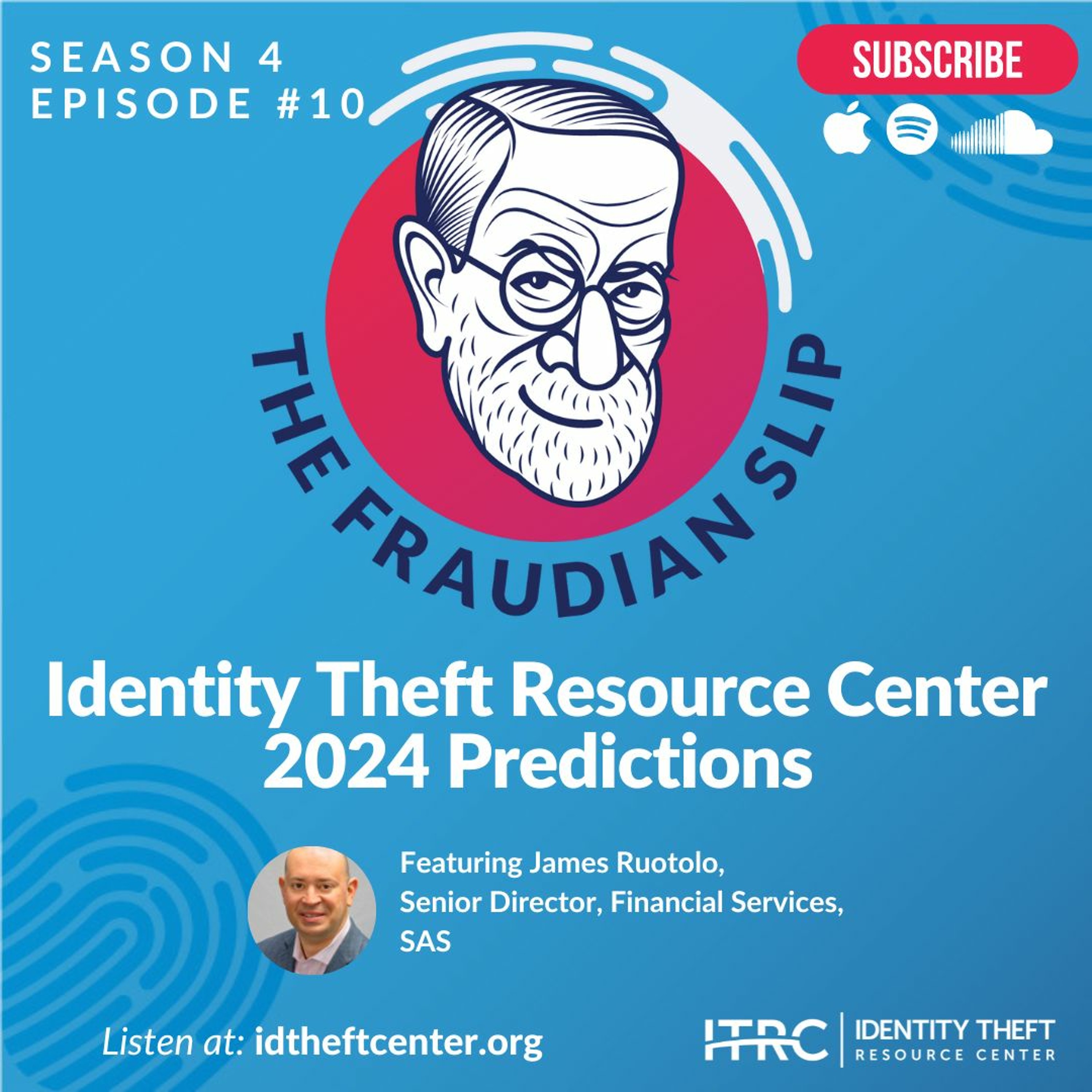
The Fraudian Slip Podcast ITRC - 2024 Predictions
Welcome to the Fraudian Slip…the Identity Theft Resource Center’s podcast where -
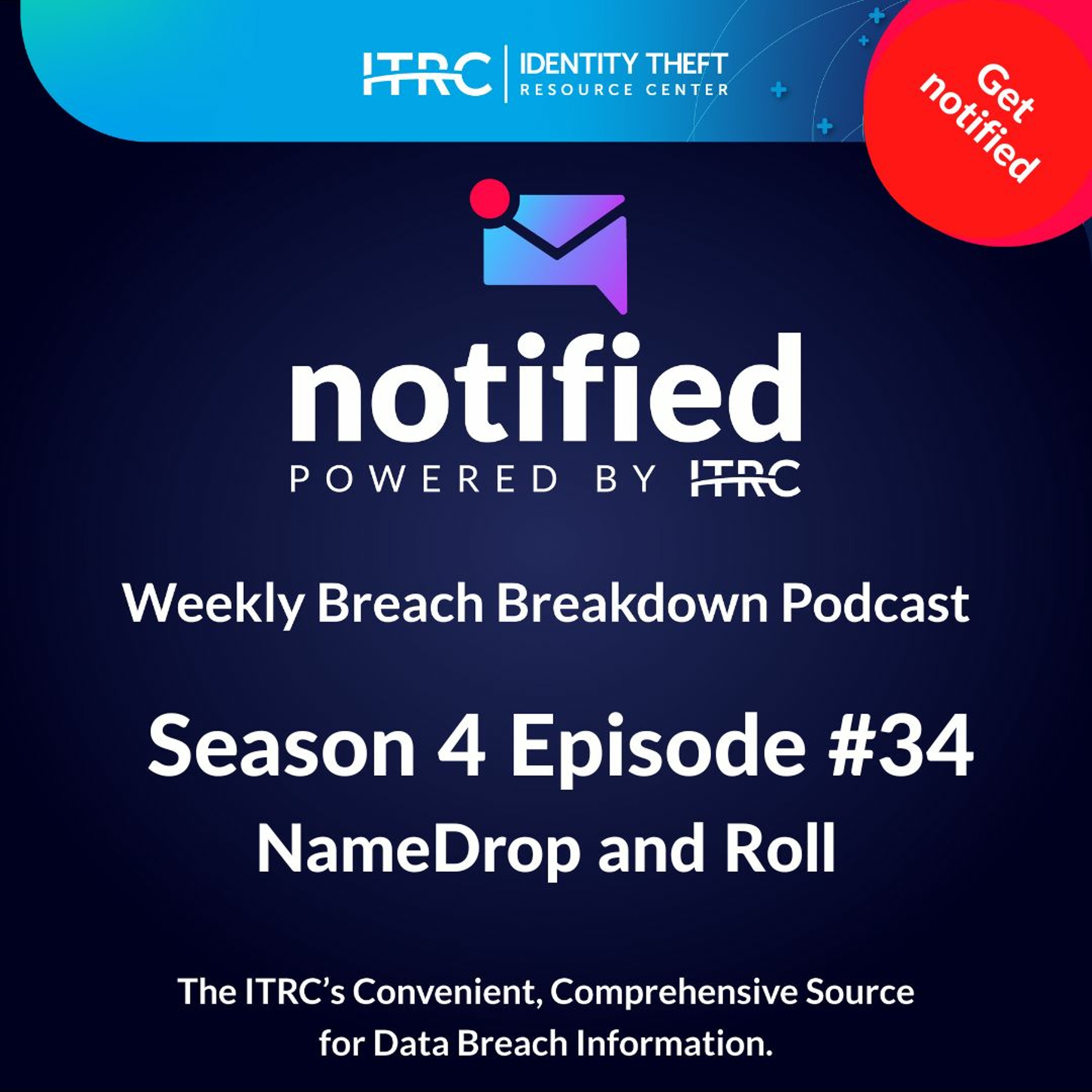
The Weekly Breach Breakdown Podcast by ITRC - NameDrop and Roll - S4E34
Welcome to the Identity Theft Resource Center’s Weekly Breach Breakdown for Dece -
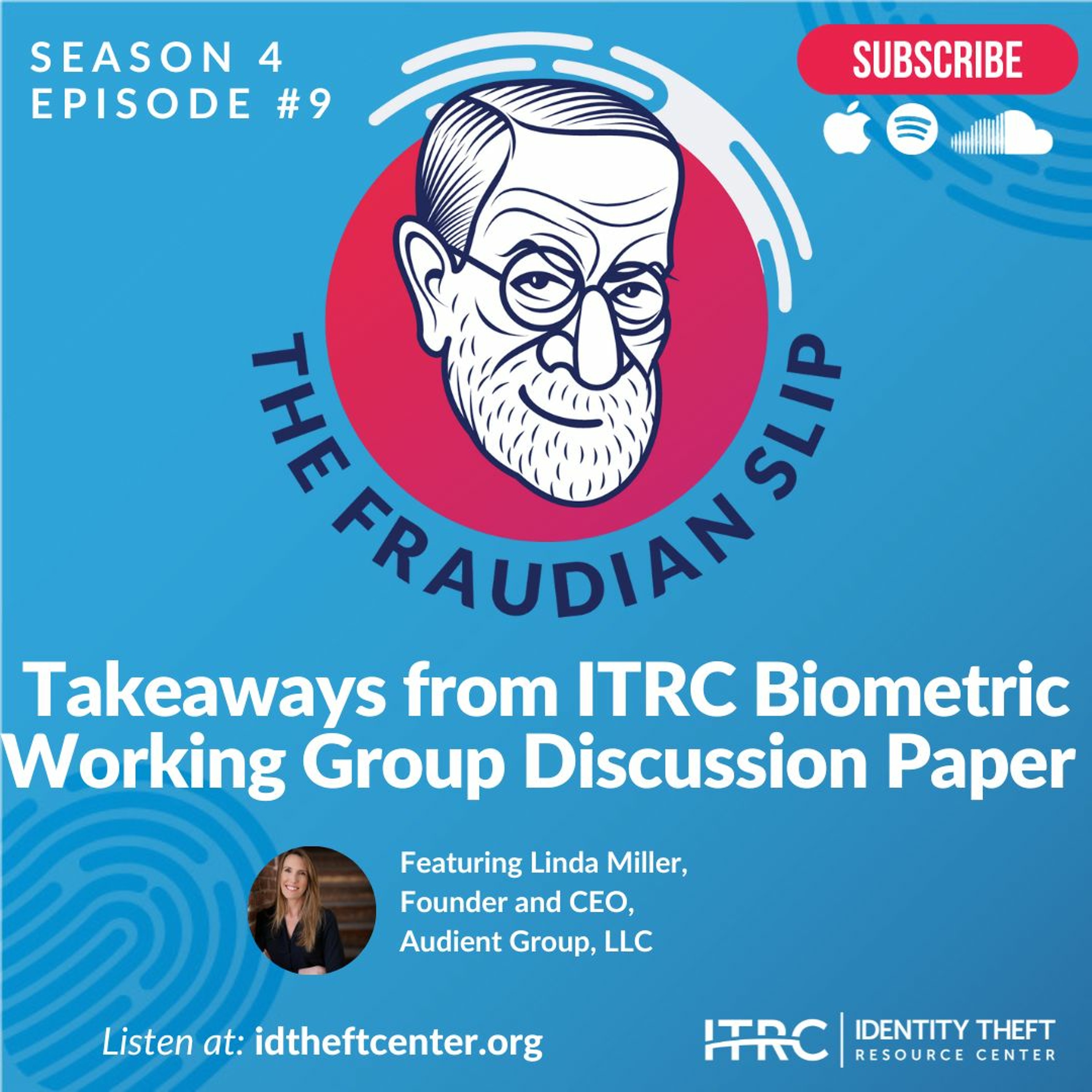
The Fraudian Slip Podcast ITRC - Takeaways from the ITRC Biometric Working Group Discussion Paper
Welcome to the Fraudian Slip…the Identity Theft Resource Center’s podcast, where -
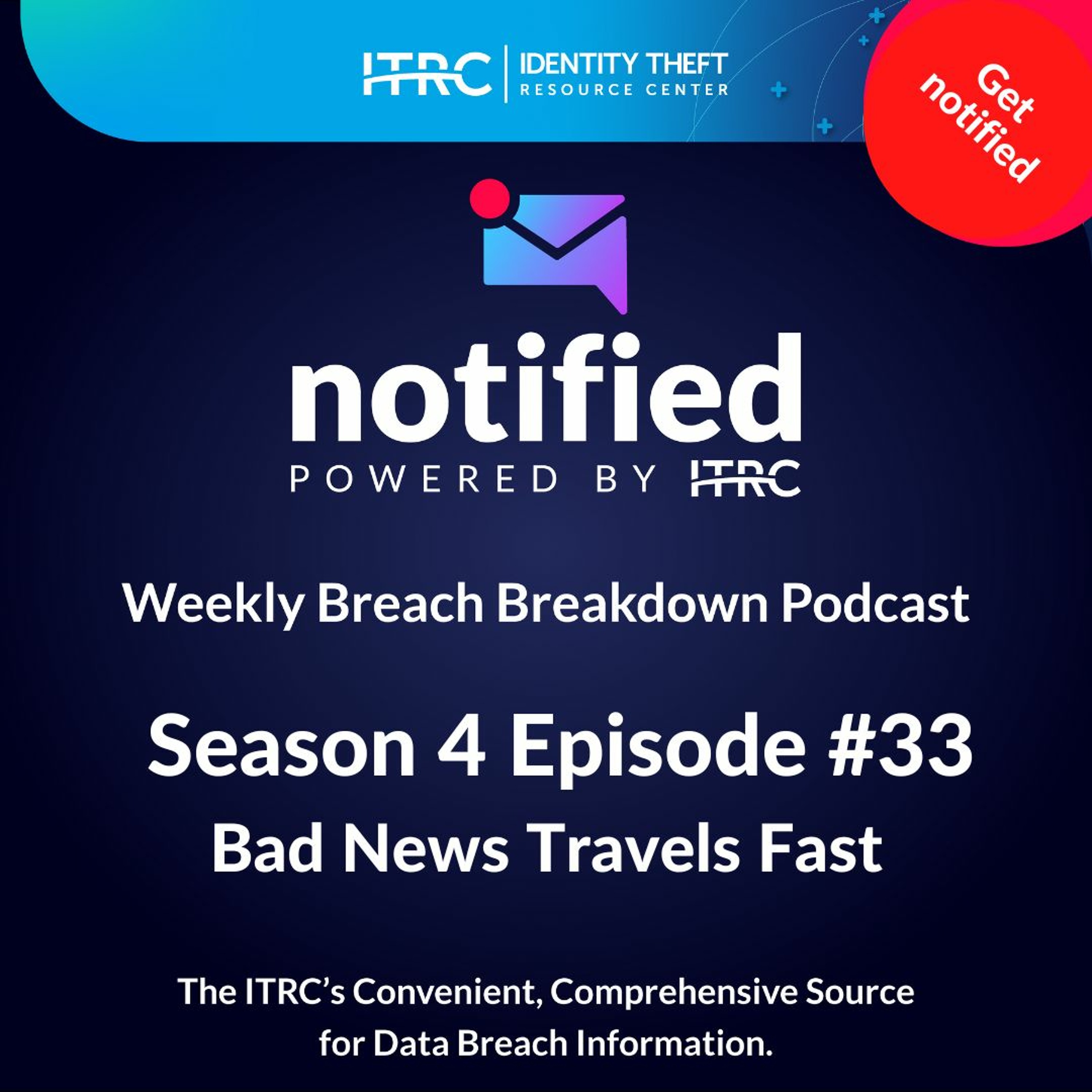
The Weekly Breach Breakdown Podcast by ITRC - Bad News travels Fast - S4E33
Welcome to the Identity Theft Resource Center's Weekly Breach Breakdown for Nove
